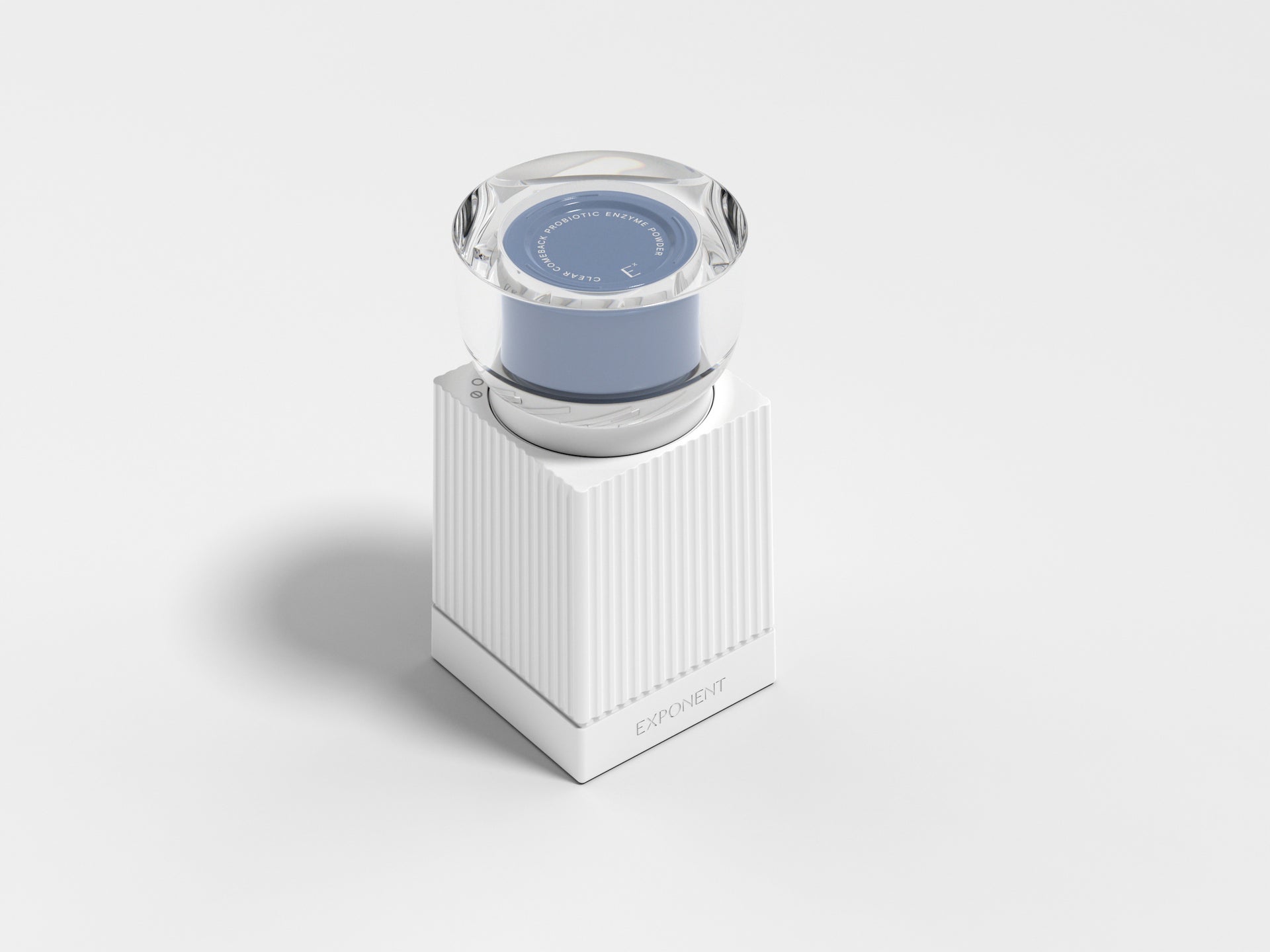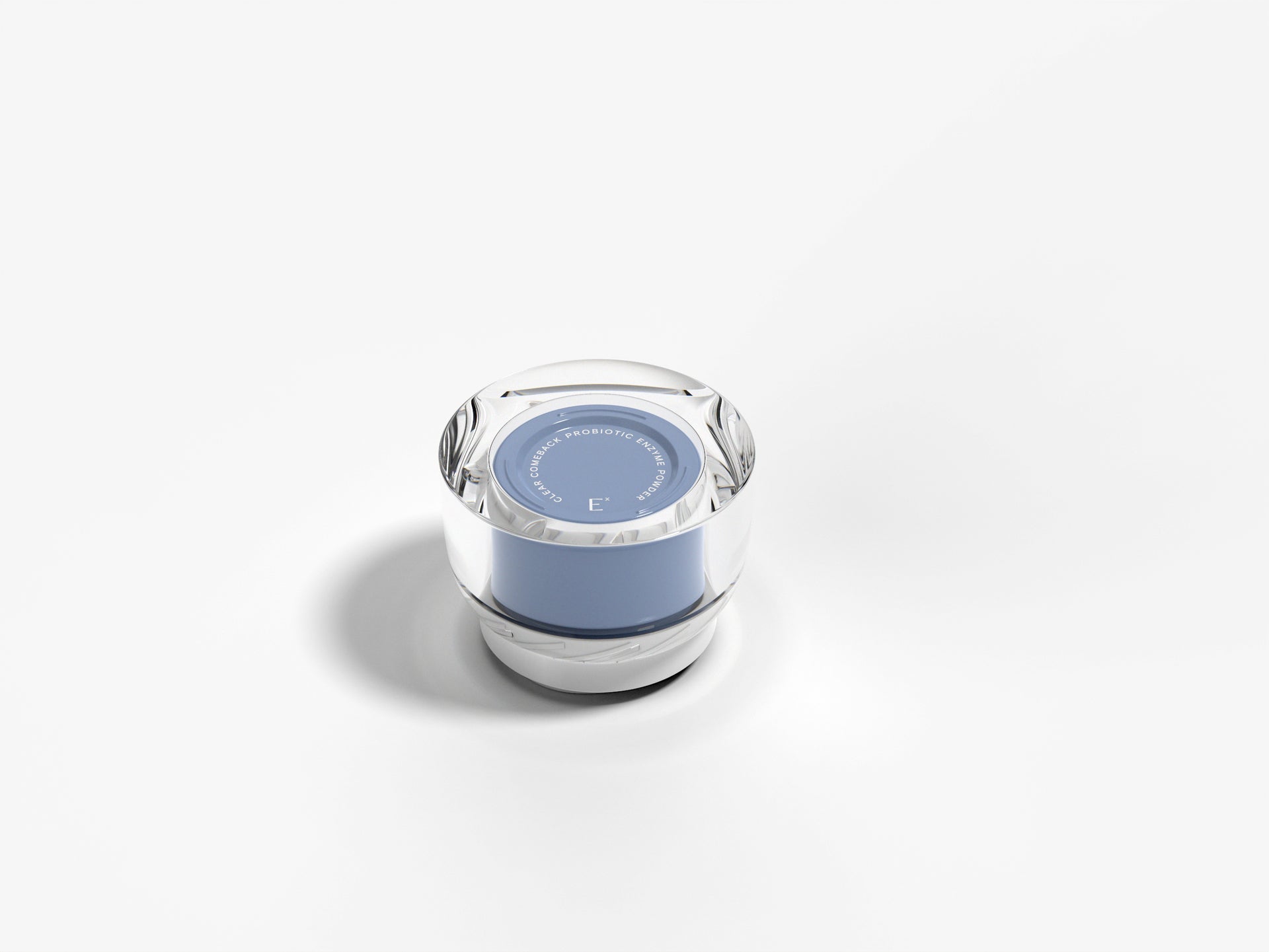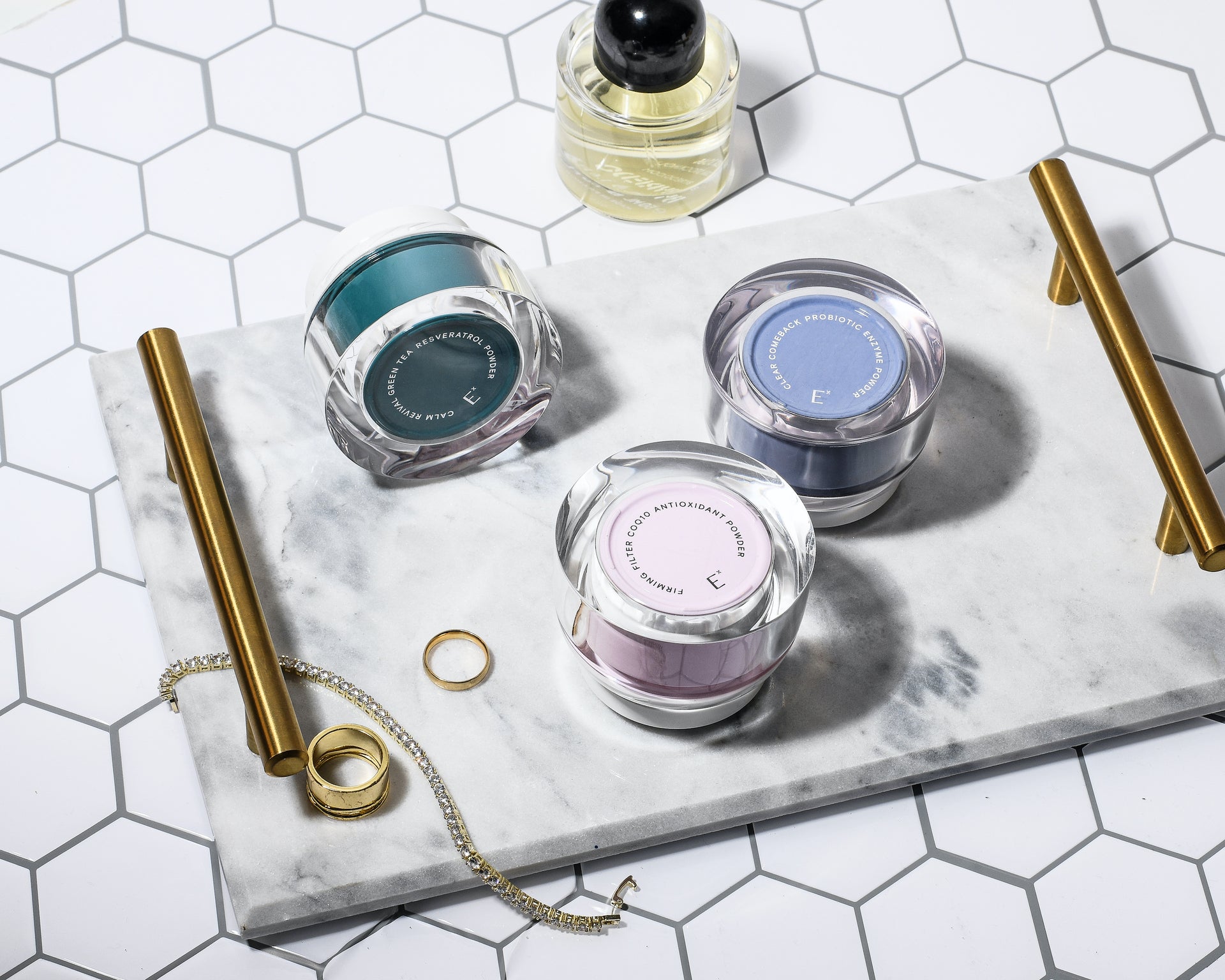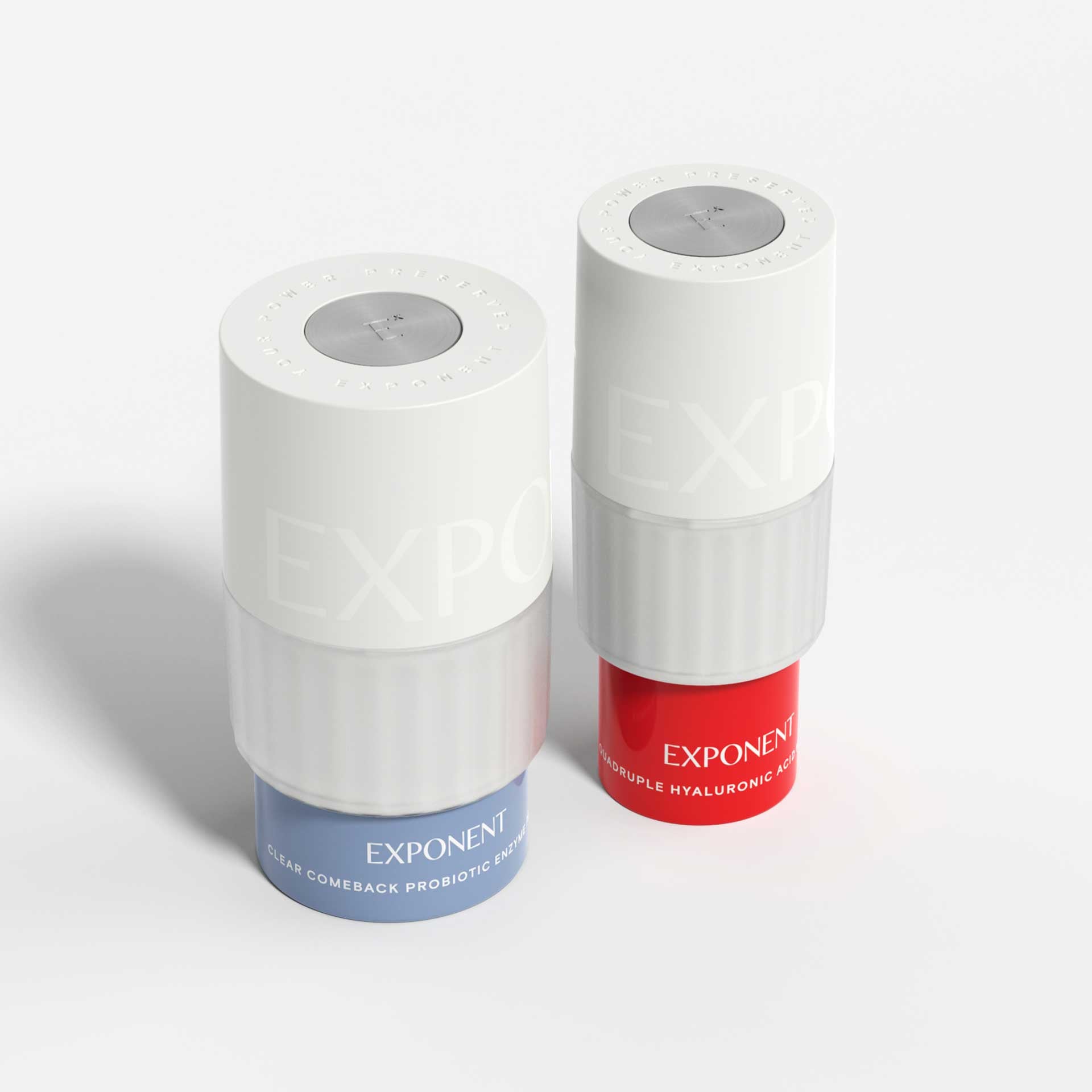When skin is unbalanced, feels tight, is too dry, or is too oily, it often means its microbiome — the physical layer that protects skin from external foes — is disturbed. Maintaining the skin's microbiome as solid and healthy is a priority for great skin. This is where probiotics can help. They reinforce the skin microbiome and work hard to keep all of your concerns at bay. Keep reading to learn about how probiotics benefit the skin and how good bacteria can help keep your complexion in its best state.
How to Use Probiotics
Probiotics in skincare have a handful of benefits that somewhat help all skin types and address each concern, from dryness to oiliness, wrinkles, acne, dermatitis, and a broken skin barrier. How do probiotics benefit the skin? By balancing its flora, stopping bad bacteria from damaging the skin, and improving its overall condition.
Here are the benefits of using probiotics:
- Reduce aging signs
- Helps prevent breakouts
- Heals irritated skin and treats scars
- Strengthens the skin barrier
1. Reduce visible signs of aging
With age and loss of essential proteins like elastin and collagen, the skin becomes more prone to wrinkles and easier for nasty bacteria to harm it. That's why you need probiotics to support healthy bacteria in the skin and reduce the chance of pathogens wreaking havoc on your complexion.
Once applied to the skin, probiotics fight off external aggressors that can prematurely wrinkle the skin and act as a protective layer against damage caused by bad bacteria. Probiotics also attenuate photoaging and improve the skin barrier role by boosting ceramides, meaning there are fewer chances for skin to wrinkle.[1] What's more, probiotics play an important role in maintaining skin hydration, making it a staple in the routine of anyone who want to plump fine lines and wrinkles.
2. Helps prevent breakouts
Many times, acne is triggered by an unbalanced pH and bacteria. "As acne is associated with an overgrowth of pathogenic bacteria, and the mainstays of therapy are often antibiotics, topical probiotics could restore a more desired microflora to decrease acne lesions without systemic side effects," Rebecca Knackstedt, M.D., of the Department of Plastic Surgery, Cleveland Clinic, and Thomas Knackstedt, M.D., of the Department of Dermatology, MetroHealth, Cleveland claim.[2]
Moreover, when probiotics are applied to the skin, they improve the barrier function which speeds the healing of pimples and prevents the apparition of new ones. At the same time, topical probiotics induce the production of ceramides, helping reduce acne and counteracting the drying effects of products that address breakouts, which can often dry-out the skin.[3]
Maintaining skin hydration and calming inflammations is a priority when it comes to breakouts. By inducing the production of ceramides, keeping skin barrier integer, and calming inflammations, probiotics help heal and prevent pimples, leading the way to flawless skin.[3]
3. Heals irritated skin & minimizes scars
Some of us have easily reactive skin that can get irritated at almost anything, whether it's a less gentle ingredient, free radicals, or the climate. Fear not. Adding probiotics to your skincare routine not only keeps irritations away by reinforcing the barrier, but they help recover irritated skin. The ceramide- and peptide-boosting ability can claim responsibility for that, but also the capacity of probiotics to prevent transepidermal water loss — more moisture means fewer chances for irritations to occur in the first place.
4. Strengthens the natural skin barrier
When you're struggling with a broken barrier, ceramides and peptides are the go-to, we all agree. While ceramides create a veil to prevent water evaporation, peptides serve as building blocks for collagen and elastin proteins, both of which play a key role in reinforcing the skin barrier. Probiotics encourage the natural production of ceramides and peptides, which, in turn, strengthen the skin barrier for a complexion that stays defended against external aggressors, pimples, early wrinkles, and irritations.[4]
Find the Best Probiotics Product for You
At Exponent, results come first, focusing on what the products are full of instead of what they're free of. Check out our Clear Comeback Probiotic Serum that was created to give you the optimal amount of probiotics in every dose. 100% of subjects that used this serum showed a clinically significant decrease in papules (blemishes/pimples) after just 1 week.
Footnotes
- Sharma D, Kober MM, Bowe WP. Anti-Aging Effects of Probiotics. J Drugs Dermatol. 2016 Jan;15. Source
- Dermatology Times, Topical probiotics may restore skin microflora, decrease acne lesions. Source
- Kober MM, Bowe WP. The effect of probiotics on immune regulation, acne, and photoaging. Int J Womens Dermatol. 2015. Source
- Habeebuddin, M.; Karnati, R.K.; Shiroorkar, P.N.; Nagaraja, S.; Asdaq, S.M.B.; Khalid Anwer, M.; Fattepur, S. Topical Probiotics: More Than a Skin Deep. Pharmaceutics 2022. Source







